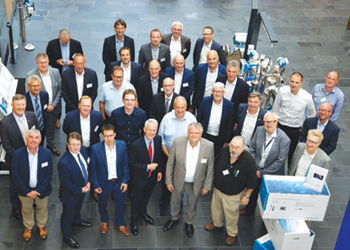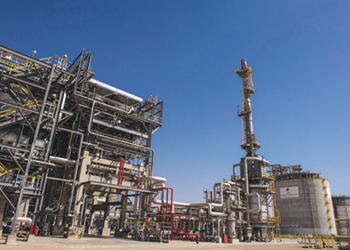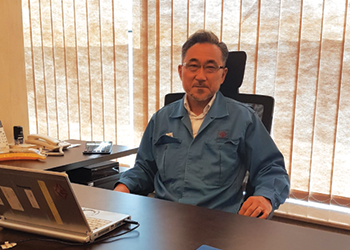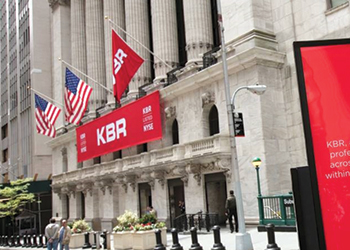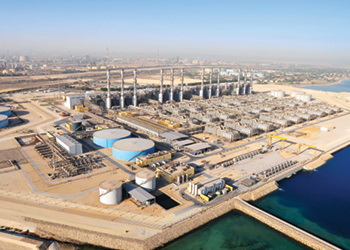
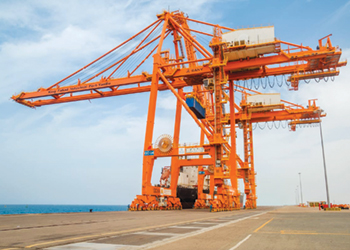 The King Fahad Industrial Port in Yanbu
The King Fahad Industrial Port in Yanbu
In addition to KFIP in Yanbu, Gulf Stevedoring Contracting Company’s (GSCCO) current portfolio includes NCT at Jeddah Islamic Port, and both King Fahad Industrial Port in Jubail, as well as Jubail Commercial Port
Mawani, Saudi Ports Authority, has recently awarded a renewed concession to operate King Fahad Industrial Port (KFIP) in Yanbu to Gulf Stevedoring Contracting Company (GSCCO), a subsidiary of the UAE-based Gulftainer Group.
Gulftainer has been operating ports in the region since 1976, and GSCCO has successfully operated terminals in Saudi Arabia since 1985. In addition to KFIP in Yanbu, GSCCO’s current portfolio includes NCT at Jeddah Islamic Port, and both King Fahad Industrial Port in Jubail, as well as Jubail Commercial Port.
With over a decade of experience in handling petrochemical shipments out of Jubail, GSCCO was the natural choice to take over operations at KFIP, says a release.
Most major shipping lines currently present in Saudi Arabia have confirmed that Yanbu is being added to their networks. As a result of this development, Yanbu is now connected by regular weekly container shipping services to the rest of the world.
With some 500,000 TEU of annual container cargo movements originating in Yanbu, and significant plans to expand manufacturing capacity, the move to connect manufacturers in Yanbu by sea to their customers will improve supply chain connectivity, reduce costs, and have a significant environmental benefit compared with the current process, of delivering cargo by road to other ports in the country, the release says.
Initial feedback from companies based in Yanbu Industrial City is that they see huge synergies between the port and their manufacturing facilities, with a recognition of savings in logistics cost, more certainty within the supply chain, a reduction in insurance rates by taking cargo off the road, and a drop in service failures resulting from accidents or breakdowns.
Preliminary estimates show that, by removing the cargo which currently moves by truck between Yanbu and Jeddah Islamic Port, and between Yanbu and King Abdullah Port, and transferring this movement to ocean transport, to connect with mainline vessels in JIP and KAP, the carbon footprint of that sector will reduce by over 65 per cent - a net reduction of 110,000 tonnes of carbon per annum. In addition, by loading cargo from KFIP, exporters will have full visibility of their cargo earlier in the supply chain, as cargo will be integrated into the shipping lines’ networks as soon as it loads out from Yanbu.
KFIP is equipped with two Super-Post Panamax quay cranes, capable of lifting loads of up to 100 MT onto vessels. The cranes are suitable for use both for containers as well as to handle large, heavy project cargo and general cargo shipments, enabling the port to handle all kinds of cargo.
To support vessel operations, the port operates with a full range of cargo handling equipment, and GSCCO is bringing additional equipment, in order to further develop the efficiency and flexibility of the port.








































































